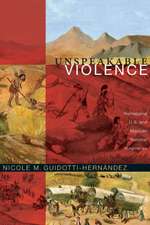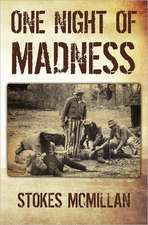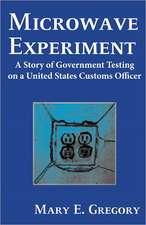People of the Volcano – Andean Counterpoint in the Colca Valley of Peru
Autor Noble David Cook, Alexandra Parma Cooken Limba Engleză Paperback – 26 iun 2007
Preț: 263.45 lei
Nou
Puncte Express: 395
Preț estimativ în valută:
50.43€ • 51.87$ • 41.84£
50.43€ • 51.87$ • 41.84£
Carte tipărită la comandă
Livrare economică 17 februarie-03 martie
Preluare comenzi: 021 569.72.76
Specificații
ISBN-13: 9780822339717
ISBN-10: 0822339714
Pagini: 336
Ilustrații: 41 b&w photographs, 12 tables, 2 maps
Dimensiuni: 156 x 233 x 25 mm
Greutate: 0.48 kg
Editura: MD – Duke University Press
ISBN-10: 0822339714
Pagini: 336
Ilustrații: 41 b&w photographs, 12 tables, 2 maps
Dimensiuni: 156 x 233 x 25 mm
Greutate: 0.48 kg
Editura: MD – Duke University Press
Recenzii
People of the Volcano is simply the best micro-regional account of colonial Peru available in English. It sets a new standard for ethnohistorical research in Spanish America.David J. Robinson, Dellplain Professor of Latin American Geography, Syracuse UniversityThe first chronological history, in English, of Perus Colca Valley, People of the Volcano displays Noble David Cooks intimate knowledge of the valleys geography, people, and past.Susan Elizabeth Ramirez, author of To Feed and Be Fed: The Cosmological Bases of Authority and Identity in the AndesNoble David Cooks People of the Volcano is a masterpiece of history writing. The story is set in one of the most rugged and dramatic landscapes in the Andesthe Colca Valley, in the southern highlands of Peru, near the city of Arequipa. From his close reading of the Spanish chronicles and administrative documents, Cook fashions a virtual ethnographythe closest approximation we are likely ever to have of a thick descriptionof everyday life in the Colca Valley during the sixteenth and seventeenth centuries. This was the period when the inhabitants of this remote valley were incorporated into the Inca empire, the last great state of the pre-Columbian Andean world, and then, following the Spanish conquest, when they became the unwilling and troublesome provincial subjects of the first global empire of the modern world, that of the Hapsburg kings of Spain. Cooks account of the imposition of the sixteenth-century Toledan reforms in the Colca Valley will stand for many years to come as the most informative and readable account of this critical, transformative process in colonial Andean history.Gary Urton, Dumbarton Oaks Professor of Pre-Columbian Studies, Harvard UniversityThis is an excellent book, which is very well researched and written. It gives anyone studying the Incas or pre-Columbian history a deep insight into their customs, history and administration. It does concentrate on the Colca valley, but through it the authors present an outstanding version of life during the Empire and the colonial period. I would recommend this book not only to historians, but to anthropologists and archaeologists who are studying the Incas as a culture.- Robert Barker, in Bulletin of Latin American Research, Vol. 28, No. 2, April 2009
"People of the Volcano is simply the best micro-regional account of colonial Peru available in English. It sets a new standard for ethnohistorical research in Spanish America."--David J. Robinson, Dellplain Professor of Latin American Geography, Syracuse University "The first chronological history, in English, of Peru's Colca Valley, People of the Volcano displays Noble David Cook's intimate knowledge of the valley's geography, people, and past."--Susan Elizabeth Ramirez, author of To Feed and Be Fed: The Cosmological Bases of Authority and Identity in the Andes "Noble David Cook's People of the Volcano is a masterpiece of history writing. The story is set in one of the most rugged and dramatic landscapes in the Andes--the Colca Valley, in the southern highlands of Peru, near the city of Arequipa. From his close reading of the Spanish chronicles and administrative documents, Cook fashions a virtual ethnography--the closest approximation we are likely ever to have of a "thick description"--of everyday life in the Colca Valley during the sixteenth and seventeenth centuries. This was the period when the inhabitants of this remote valley were incorporated into the Inca empire, the last great state of the pre-Columbian Andean world, and then, following the Spanish conquest, when they became the unwilling and troublesome provincial subjects of the first global empire of the modern world, that of the Hapsburg kings of Spain. Cook's account of the imposition of the sixteenth-century Toledan reforms in the Colca Valley will stand for many years to come as the most informative and readable account of this critical, transformative process in colonial Andean history."--Gary Urton, Dumbarton Oaks Professor of Pre-Columbian Studies, Harvard University "This is an excellent book, which is very well researched and written. It gives anyone studying the Incas or pre-Columbian history a deep insight into their customs, history and administration. It does concentrate on the Colca valley, but through it the authors present an outstanding version of life during the Empire and the colonial period. I would recommend this book not only to historians, but to anthropologists and archaeologists who are studying the Incas as a culture."- Robert Barker, in Bulletin of Latin American Research, Vol. 28, No. 2, April 2009
"People of the Volcano is simply the best micro-regional account of colonial Peru available in English. It sets a new standard for ethnohistorical research in Spanish America."--David J. Robinson, Dellplain Professor of Latin American Geography, Syracuse University "The first chronological history, in English, of Peru's Colca Valley, People of the Volcano displays Noble David Cook's intimate knowledge of the valley's geography, people, and past."--Susan Elizabeth Ramirez, author of To Feed and Be Fed: The Cosmological Bases of Authority and Identity in the Andes "Noble David Cook's People of the Volcano is a masterpiece of history writing. The story is set in one of the most rugged and dramatic landscapes in the Andes--the Colca Valley, in the southern highlands of Peru, near the city of Arequipa. From his close reading of the Spanish chronicles and administrative documents, Cook fashions a virtual ethnography--the closest approximation we are likely ever to have of a "thick description"--of everyday life in the Colca Valley during the sixteenth and seventeenth centuries. This was the period when the inhabitants of this remote valley were incorporated into the Inca empire, the last great state of the pre-Columbian Andean world, and then, following the Spanish conquest, when they became the unwilling and troublesome provincial subjects of the first global empire of the modern world, that of the Hapsburg kings of Spain. Cook's account of the imposition of the sixteenth-century Toledan reforms in the Colca Valley will stand for many years to come as the most informative and readable account of this critical, transformative process in colonial Andean history."--Gary Urton, Dumbarton Oaks Professor of Pre-Columbian Studies, Harvard University "This is an excellent book, which is very well researched and written. It gives anyone studying the Incas or pre-Columbian history a deep insight into their customs, history and administration. It does concentrate on the Colca valley, but through it the authors present an outstanding version of life during the Empire and the colonial period. I would recommend this book not only to historians, but to anthropologists and archaeologists who are studying the Incas as a culture."- Robert Barker, in Bulletin of Latin American Research, Vol. 28, No. 2, April 2009
Notă biografică
Textul de pe ultima copertă
"Noble David Cook's "People of the Volcano" is a masterpiece of history writing. The story is set in one of the most rugged and dramatic landscapes in the Andes--the Colca Valley, in the southern highlands of Peru, near the city of Arequipa. From his close reading of the Spanish chronicles and administrative documents, Cook fashions a virtual ethnography--the closest approximation we are likely ever to have of a "thick description"--of everyday life in the Colca Valley during the sixteenth and seventeenth centuries. This was the period when the inhabitants of this remote valley were incorporated into the Inca empire, the last great state of the pre-Columbian Andean world, and then, following the Spanish conquest, when they became the unwilling and troublesome provincial subjects of the first global empire of the modern world, that of the Hapsburg kings of Spain. Cook's account of the imposition of the sixteenth-century Toledan reforms in the Colca Valley will stand for many years to come as the most informative and readable account of this critical, transformative process in colonial Andean history."--Gary Urton, Dumbarton Oaks Professor of Pre-Columbian Studies, Harvard University
Cuprins
Descriere
First full-length history of the Colca Valley in southern Peru from pre-Hispanic times to the present
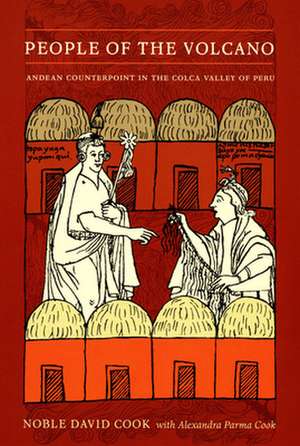






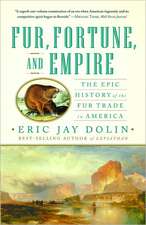
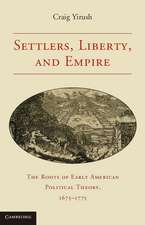

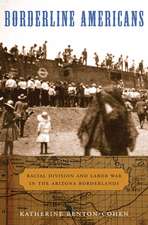
![The Civil War Boxed Set [With American Homer]](https://i0.books-express.ro/bt/9780679643708/the-civil-war-boxed-set-with-american-homer.jpg)

